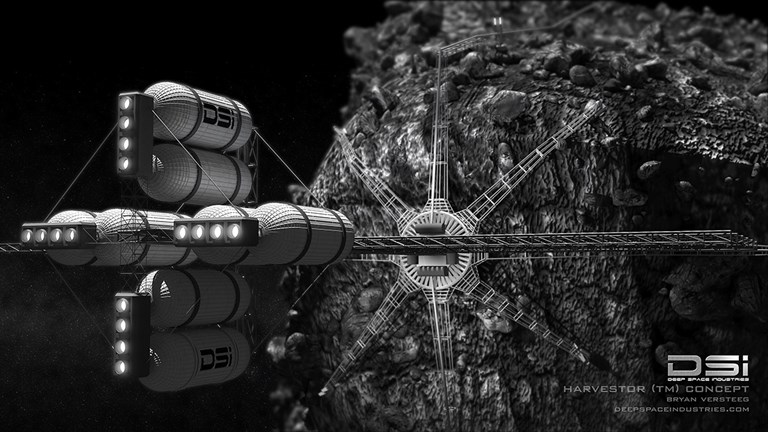When I catch up with Rick Tumlinson, he has just returned from Vienna, where he spoke before the United Nations about the present and future of the commercial space industry. He’s breathless from climbing three flights of stairs — no great height for a space frontiersman — but elated with the response from diplomats in Austria: “They really got it,” he says.
Five years ago, when Tumlinson first proclaimed that humans would begin mining asteroids for precious minerals and water within a decade, he was met with widespread disbelief. Today, 61-year-old Tumlinson’s ambitions for his company, Deep Space Industries, are within reach. In the first half of 2017, it plans to launch three flights to test a water-based propulsion system and interstellar travel capabilities in advance of the first asteroid mining expedition. Alongside companies like SpaceX and Planetary Resources, private outfits are seeking to outpace NASA in achieving the commercial potential of space. We’re in the middle of the next great space race, as a handful of privately held companies state their bold ambitions for a multitude of commercial endeavors in the cosmos: satellites, rockets, mining, travel, refueling stations, massive 3-D-printing structures, even colonization.

There are approximately 2 million asteroids with diameters of one kilometer or greater in our solar system. These can contain quartz, gold, platinum or hydrogen, among other compounds. Tumlinson, like SpaceX’s Elon Musk, PayPal billionaire Peter Thiel and many other Silicon Valley big dreamers, sees the future in the cosmos. Though mining asteroids looks to many laymen like a neat solution for earthly problems, Tumlinson has eyes on a bigger prize: “Those of us who believe that the human settlement of space is our goal, our destiny, our job, we realize that we have to have an economy in space.” Asteroids rich with minerals and water are the first step in building the galactic infrastructure — “gas stations in space,” as Tumlinson calls them.
Born to an Air Force sergeant and an Englishwoman in San Angelo, Texas (Earth), two years before NASA was founded, Tumlinson was a bookish, asthmatic kid who spent his youth buried in Asimov and Heinlein novels. Inspired by NASA’s heroics with Apollo, Galileo and Voyager missions, Tumlinson jokes that his imagination got away with him, and he (and much of the world) has spent his adult life catching up. Over the past three decades, he’s testified before Congress six times to argue for commercial access to space. And the animated, goatee-sporting Texan was largely responsible for the conversion of the Russian space station Mir into the first commercial space vessel in history in 2001.
As for the next chapter in history? Last year, the Space Exploration, Development, and Settlement Act passed, which gives those who settle in space — a lunar colony or an asteroid-mining facility, for example — the right to noninterference by the government. For Tumlinson et al., who have been pursuing this legislative agenda since the late ’80s, just after the Reagan Star Wars era, this means it’s finally game on in the great beyond. And what a game for a techno-futurist with a libertarian itch to scratch. Now Tumlinson’s DSI is developing spaceflight and mining technology, making its money by providing upgrades, repairs and replacements to the 2,271 satellites currently orbiting Earth. This year, DSI will launch Prospector-X, a “nano-spacecraft” to test gadgets like water-based rocket propellant and neutron spectrometers (which measure the magnetic movements of atoms) — gear needed to make mining work. And though mining could eventually bring us precious metals like gold, Tumlinson, for now, is all about the H20. “Water is the gold of space. It’s the oil of space. If we have water, we can create air and rocket propellant. That is really what it’s all about.”

